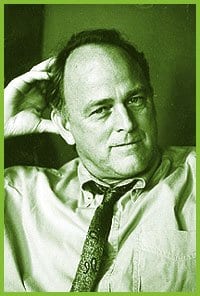We march down the streets of Ottawa with pride, with freedom to be who we are, to celebrate our achievements. The past year has been eventful – Ontario’s highest court upholds the right to same-sex marriage while a parliamentary committee debates extending marriage rights to same-sex couples; Bill C-250, introduced by Svend Robinson, seeks to include sexual orientation in the hate propaganda section of Canada’s Criminal Code. All this despite countervailing arguments forwarded by the religious right. And yet, despite radically divergent points of view in Canada, gays, lesbians and transsexuals can still revel openly in Ottawa and in other cities across the land.
This is not the case in count-ries in Latin America and the Caribbean, where GLBT communities have little or no human rights protection and individuals become easy victims of violent homophobic acts.
In mid-May, Claudia Maria Acevedo Gonzalez, of the Colectiva de Lesbianas Liberadas in Guatemala, came to Canada to speak on the issue. Amnesty International sponsored the tour, while Egale Canada brought Gonzalez to Ottawa.
Guatemala had a long period of civil unrest as groups struggled to overthrow a totalitarian regime. 1984 was the country’s darkest hour. Assassinations and genocide were widespread, particularly against indigenous peoples.
A 1996 Peace Accord attempted to move the country from a culture of violence to one of peace. Seven years later, the situation remains precarious. The population remains deeply distrustful, frustrated by a government that still resists full human rights protection for its most vulnerable people.
Latin America has a deeply ingrained hetero-patriachal culture, Gonzalez explains. Deliberations about gay sexual identity are near to impossible because historically, the Catholic Church dominated the culture and politics of the country. Increasingly the Church’s position has been replaced by fundamentalist Christian denominations.
“In Guatemala,” she says through a translator, “no one is open about sexuality, particularly those in public positions. To a limited extent, gays and transsexuals can be public due to the sex trade, but the situation for lesbians remains essentially private. Violence against women remains hidden. When it involves a lesbian woman, sexual orientation goes unrecorded.”
She first became involved in revolutionary activities. Recognizing the limited space within the revolution allocated to women’s needs, she struggled to create opportunities. Realizing she was lesbian, she brought her knowledge of the political and feminist together.
In 1995, she was among a group who came together to articulate lesbian rights. Although that group did not last, in 1998/99 the Colectiva was formed, of which she was a founding member. It’s the first legally registered lesbian organization in the country and promotes the public defence of lesbians. It also works within the lesbian community to strengthen it.
The Colectiva has been active in promoting a bill that would prevent discrimination based on sexual orientation. Gonzalez outlined how a recent bill on sexual and reproductive rights has become bogged down. A commission was formed to discuss implementation and members from religious organizations in Guatemala were nominated to it. Debate around this bill has focused on moral issues which has obscured the bill’s intent. Any human rights bill extending sexual orientation protection, she stressed, would be staunchly opposed by the Christian right. Discussion of it would be bogged down in the same way.
There is a gay men’s movement in Guatemala, but its efforts are focused largely on HIV/AIDS rather than human rights lobbying. So, the Colectiva works in collaboration with feminist organizations and human rights groups in the region to put sexual diversity rights on the map. It aligns itself with other vulnerable groups, such as indigenous peoples and the disabled. Internationally, it meets with gay and lesbian communities and organizations concerned with human rights issues, hoping individuals in these countries will lobby their own governments and pressure the Guatemalan government to take action.
We in Canada are where we are today by being vigilant. As we celebrate our sexual orientation during Pride Week, we should set aside time to write letters or send e-mails to our politicians to ensure pride is truly global.

 Why you can trust Xtra
Why you can trust Xtra


